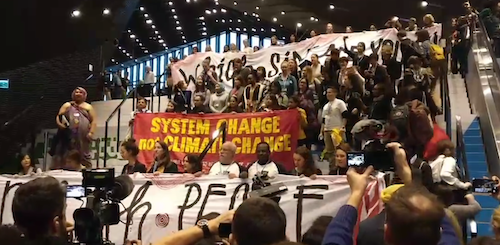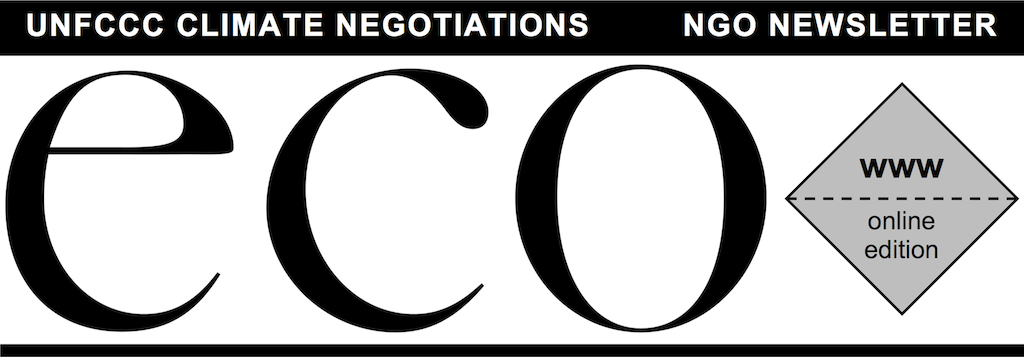We want you to panic – this is a climate emergency
Dear Delegates,
Some of you might have read the famous Harry Potter books and may remember thinking: ‘How implausible to create a story where a bunch of children have to show up at the government ministry to warn adults about the dangers threatening the very existence of their world!’
Well… it’s 2019 and much has happened since 16-year-old Greta Thunberg spoke at COP24. Last month, 1.5 million young people took to the streets of 120 countries, refusing to accept inaction on climate change. The climate emergency is here – and young people are telling us it’s time to act!
ECO is glad many of you want to contribute to climate action at SB50 and – you would have never guessed – we have some great advice for you. From now on, no meeting of governments on climate can be business as usual. SB50 takes place just before a series of international meetings – MoCA, G20 Summit, the Abu Dhabi meeting, and the G7. Keeping these events in mind and working towards the UNSG Summit, the GCF replenishment meeting and COP25, ECO wishes to see many informal and formal conversations on expectations and plans to deliver political progress in three key areas: Support, Climate Impacts, and Ambition.
... Read more ...


